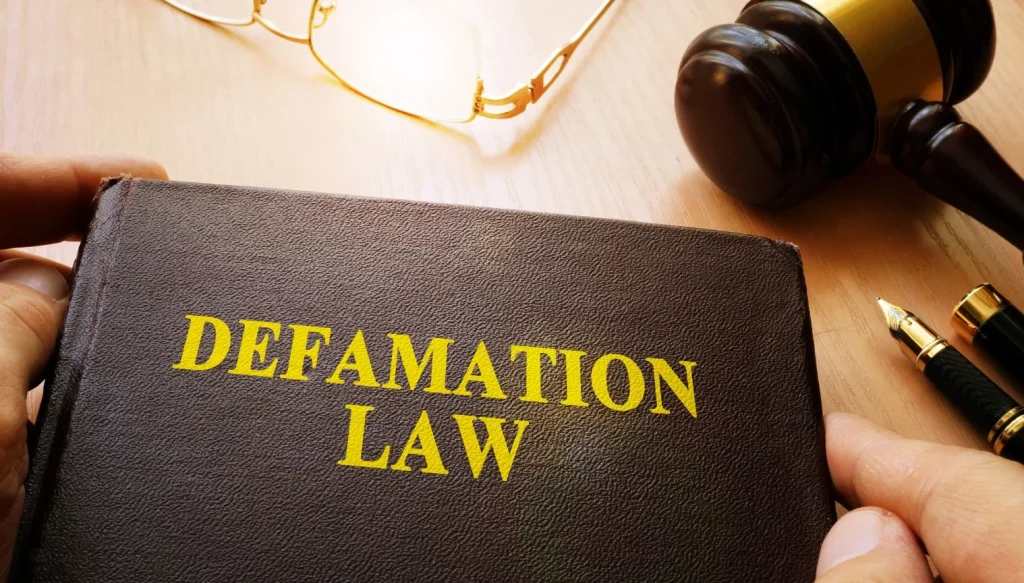Defamation of Character Ontario: Know Your Legal Options

Defamation of character Ontario is a serious legal issue that affects individuals and businesses alike, especially in today’s digital age where false information can spread instantly and cause lasting reputational harm. Whether it happens online, in print, or through spoken words, harm to reputation can damage someone’s career, relationships, and mental well-being. Fortunately, Ontario’s legal framework provides avenues for redress—and the right legal professional can make all the difference.
What Is Defamation?
It involves making a false statement about an individual or organization that results in damage to their reputation. In Ontario, such cases are categorized into two types: libel, which is written or published, and slander, which is spoken. Both forms are actionable under defamation law in Ontario, provided certain criteria are met.
To establish a reputation-related legal claim, the plaintiff must prove:
- The statement was harmful to reputation.
- It referred specifically to the plaintiff.
- It was communicated to at least one third party.
Unlike some jurisdictions, Ontario does not require proof of actual damages for libel—harm is presumed once the injurious nature of the statement is shown. For slander, however, the plaintiff typically must demonstrate real harm unless the statement fits certain exceptions (such as allegations of criminal behavior).
Once these elements are proven, the burden shifts to the defendant to raise a valid defense, such as truth, fair comment, or qualified privilege.
Defenses Against Reputation-Related Claims
Defendants in a character-related legal action often rely on several well-established defenses, including:
- Truth – If the statement is factually accurate, it is not considered defamatory, regardless of the harm caused
- Fair comment – Opinions expressed on matters of public interest are protected, provided they are made without malice and based on facts
- Qualified privilege – Certain communications (e.g., employment references, public interest reporting) are protected if made in good faith and without improper motive
- Absolute privilege – Statements made during legislative debates or in judicial proceedings are fully protected, regardless of intent or accuracy
It is vital to consult with a knowledgeable attorney early on to assess the viability of these defenses. Legal advice can help avoid escalation and reduce the risk of unnecessary litigation.
An Overview on
The Libel and Slander Act Ontario is a key piece of legislation that influences how certain reputation-related legal matters are handled in the province. Specifically, it applies to harmful statements that are published in newspapers or broadcast by radio or television. Alongside common law principles, the Act helps establish the legal framework for evaluating claims of reputational harm and sets out recognized defenses, including truth, fair comment, qualified privilege, and absolute privilege.
While some refer informally to a “Defamation Act Ontario,” there is no standalone statute by that name. Instead, defamation law in Ontario is shaped by a combination of the Libel and Slander Act, traditional common law, and procedural statutes such as the Limitations Act, 2002.
For example, if a person makes a true statement—even if it damages another’s reputation—truth serves as a complete defense. Similarly, opinions expressed in good faith on matters of public interest may be protected under the doctrine of fair comment, provided they are not made with malice.
Ontario courts rely on the Libel and Slander Act when determining procedural requirements for claims involving newspapers or broadcasts. In these cases, plaintiffs must provide written notice within six weeks of the alleged libel and must commence legal action within three months of its discovery. However, for other forms of reputational harm—such as online posts or private communications—the general two-year limitation period under the Limitations Act, 2002 typically applies.
Taking Legal Action for Reputational Harm in Ontario
Suing for defamation in Ontario requires a strategic and well-informed approach. Plaintiffs must first determine whether their claim is legally actionable—meaning the statement in question was not only false but also caused reputational harm. It’s equally important to assess whether the potential damages justify the cost and complexity of litigation.
Courts in Ontario consider several key factors when evaluating claims related to reputational harm. These include the seriousness of the defamatory statement, the intent behind it, and the scope of its publication. A central question is whether the statement would lower the plaintiff’s reputation in the estimation of a reasonable member of the community. The larger the audience and the more damaging the context, the greater the potential for substantial remedies.
The legal process typically follows these key steps:
- It begins with a formal demand letter, which requests a retraction and an apology from the alleged defamer.
- This step can sometimes resolve the issue outside of court, especially when reputational repair—not monetary compensation—is the primary goal.
- If the matter remains unresolved, the plaintiff may proceed to initiate a lawsuit.
- At this stage, it is vital to collect comprehensive evidence, such as:
- Screenshots or physical copies of the defamatory statement.
- Witness testimony from individuals who saw or heard the content.
- Documentation showing reputational harm or emotional distress.
- Proof of financial losses or damage to professional relationships.
Given the intricacies of defamation law in Ontario, it is vital to work with a lawyer who is specifically experienced in this field. Not all legal professionals are equipped to handle the unique challenges these cases present. Lawyers who focus on civil litigation, particularly those who serve as a defamation and slander attorney or a libel defamation attorney, bring the necessary expertise in balancing reputational rights with protections like freedom of expression.
Canadian courts have demonstrated a willingness to award significant damages in successful defamation cases in Canada, particularly where the defamatory statements were widely disseminated or demonstrated malicious intent. For instance, in several high-profile cases involving bloggers, journalists, or social media influencers, courts have ordered defendants to pay hundreds of thousands of dollars in compensation due to the extensive harm inflicted on the plaintiff’s career or reputation. These rulings highlight not only the legal consequences of defamation but also the importance of choosing the right legal path—and the right lawyer—to pursue it.
Types of Lawyers Who Handle Reputation-Related Cases
When facing harm to your personal or professional reputation, choosing the right legal representation is essential. Here are the key types of lawyers who can assist:
1. Civil Litigation Lawyer
A civil litigation lawyer specializes in non-criminal disputes, including torts such as defamation. These lawyers are skilled in:
- Filing claims and initiating lawsuits
- Managing discovery, which involves gathering and exchanging evidence
- Representing clients in civil court, including motions, hearings, and trials
Their broad expertise in civil law makes them a strong starting point for individuals exploring legal remedies for reputational harm, especially when the case may intersect with other civil issues like breach of contract or emotional distress.
2. Defamation and Slander Attorney
A defamation and slander attorney specializes in cases involving reputational harm. These lawyers are well-versed in the nuances of libel and slander, including the statutory requirements under the law. They can:
- Assess the strength of your case by evaluating the defamatory content and its impact
- Help gather evidence, such as digital records, witness statements, and communications
- Represent you in court or settlement negotiations to pursue remedies like retraction, apology, or financial compensation
3. Libel Defamation Attorney
A libel defamation attorney specializes in cases involving false and damaging written statements, including newspaper articles, blog posts, social media publications, and other forms of digital and print media. With the rise of online misinformation, these attorneys are seeing increasing demand, particularly from professionals and public figures.
These professionals are skilled in:
- Handling high-profile matters involving online or print publications
- Navigating legal thresholds for libel, such as proof of publication and reputational harm
- Pursuing remedies, including retractions, apologies, and financial compensation
4. Attorney for Defamation
An attorney for defamation offers broader legal services covering both libel and slander. These lawyers are valuable for their ability to:
- Identify the most effective legal strategy, whether that involves litigation, mediation, or reputation management
- They may also be involved in out-of-court settlements, helping clients avoid the cost and publicity of a trial
- Advise on communication tactics to minimize reputational damage
- Handle diverse scenarios, from personal attacks to business-related disputes
5. Civil Matter Attorney
A civil matter attorney can be a general practitioner of civil law but may handle reputation-related cases depending on their experience. While not as specialized as defamation lawyers, they can still provide significant value—especially in less complex situations or when a quick settlement is the goal.
These attorneys are helpful when they:
- Provide general legal support in non-criminal disputes, including claims involving reputational harm.
- Offer initial legal guidance on whether the issue qualifies as a false and damaging statement.
- Help navigate overlapping legal concerns, such as emotional distress or breach of contract.
- Facilitate referrals or collaborate with specialized defamation counsel when needed.
Looking for a Defamation Lawyer Near Me
Protecting one’s reputation is more important than ever in an age where information—true or false—travels instantly. Defamation can cause lasting harm, not only to personal dignity but also to professional prospects and mental well-being. Fortunately, Ontario’s legal system provides multiple paths for those seeking justice, whether through the courts, mediated settlements, or preventive legal strategies.
From navigating the Libel and Slander Act to choosing the right attorney—whether a civil litigation expert, defamation specialist, or one of many experienced defamation lawsuit lawyers—each decision plays a critical role in achieving a fair outcome. Knowing your rights, understanding potential defenses, and acting within the appropriate timelines are all essential steps.
With experienced legal guidance, individuals and businesses can effectively respond to reputational attacks and restore their good name—especially when facing challenges involving defamation of character Ontario.
Need legal advice about defamation?
If you believe you’ve been the victim of false and damaging statements, don’t wait. Contact an experienced defamation lawyer today to protect your rights and restore your reputation.
Join BLS as we bring groundbreaking entrepreneurs and professionals together to discuss the creativity that inspires them and makes businesses flourish.




